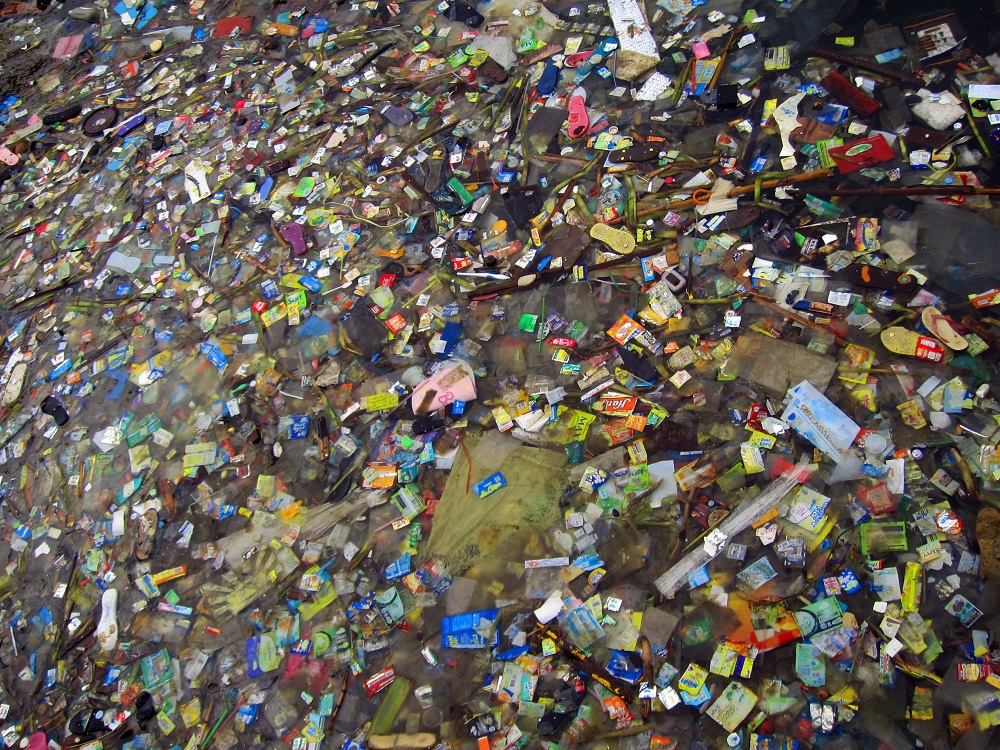
March 18, 2021 Thursday

Philippine marine debris. Photo from the World Wide Fund for Nature website at: https://wwf.panda.org/discover/knowledge_hub/where_we_work/coraltriangle/?329831/The-scourge-of-single-use-plastic-in-the-Philippines/.
MANILA — The Climate Change Commission welcomed the adoption of a bill banning single-use plastics in a meeting of the House of Representatives Committee on Ecology Thursday, March 18, lauding the move as a critical step in reducing greenhouse gas emissions and addressing climate change.
The House bill consolidates the 38 bills and four House resolutions seeking to phase-out or regulate single-use plastics, including a bill filed by House Speaker Lord Allan Jay Velasco. The resulting substitute bill was adopted in a meeting presided over by Committee Chair Rep. Glona Labadlabad, and will now be submitted to the plenary after several meetings and consultations with stakeholders and experts held by a technical working group chaired by Rep. Francisco “Kiko” Benitez.
“We have been addicted to the use of plastics. It’s been implicit in many of our habits and it plays an important role in the way our economy works, but at the same time we are in the middle of an environmental crisis that really cannot wait for us to take much longer in order to address the cries of Mother Nature,” said Benitez, who acknowledged the need to address the concerns of industry but emphasized the urgency needed to protect the environment.
Benitez also discussed the bill’s salient points during the Committee’s deliberation.
“There is a transition period and tiers of single-use plastic products that will be regulated in varying degrees—the first tier is intended to be phased out within one year,” Benitez explained.
“The second component of the bill is an Expanded Producers Responsibility to reduce and recover single-use plastic products in the market and avoid their leaking into the environment through the development of alternative products, offsetting their plastic footprints, and buyback schemes of whatever is released into the market,” he added.
“The third component is environmental education to help modify the behavior of our consumers and wean us away from our difficult addiction to plastic use,” Benitez said.
“The last component is the sharing of revenues from fees and penalties between the National Solid Waste Management Commission and the barangays to help provide the barangays a source of fund to enhance material recovery and solid waste management programs on the ground,” he concluded.
CCC Commissioner Rachel Herrera, one of the resource persons present at the Committee’s meeting, lauded the bill’s approval. “The House Committee on Ecology’s adoption of the bill banning single-use plastics brings us closer to achieving our targets to reduce greenhouse gas emissions and combat climate change. If passed into law, this will help Filipinos survive climate impacts as we will reduce risks of flooding and manage our increasing carbon footprint,” Herrera added.
In its Roadmap for Sustainability on Single-Use Plastics, the United Nations Environment Programme warns that the world’s capacity to cope with plastic waste has already been overwhelmed. With only 9% of the world’s plastic waste being recycled and the rest ending up in landfills, dumps, or in the environment, the report estimates that there will be 12 billion tons of plastic litter in landfills and the environment by 2050. Aside from the environmental impact, the UN also warns of the numerous health problems and vast economic damage caused by plastic waste.
The CCC, led by its Chairperson-designate Finance Secretary Carlos G. Dominguez, has been advocating for the passage of the bill and lending its expertise as the TWG refined and consolidated proposals. The CCC has earlier emphasized that it is aligned with the aims of the bill “to advance realistic solutions to address the challenge of single-use plastics pollution and provide a clear pathway for the pursuit of sustainable consumption and production.”